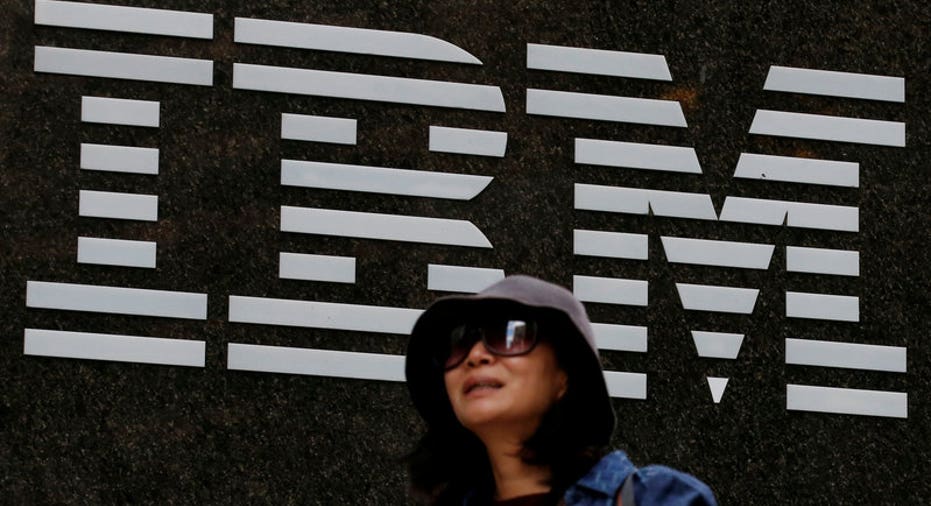IBM Shares Hit After 1Q Earnings Signal Slower-than-Expected Turnaround

Big Blue shares were washed in red Wednesday as they dropped nearly 6% and traded at a four-month low – dragging the Dow Jones Industrial Average into negative territory – after the company posted its first revenue miss in five quarters, signaling its turnaround efforts are progressing slower than Wall Street expected.
With demand stagnating in its once robust hardware and software businesses, IBM (NASDAQ:IBM) has put more focus on growing what it calls “strategic imperatives,” which include some cloud-based services, security, data analytics, cognitive computing and artificial intelligence like its Watson supercomputer.
That area of the business grew 13% on a currency-adjusted basis from the year prior – with cloud services jumping 35% during the period to post $3.5 billion in revenue. As a whole, the company’s strategic imperatives accounted for $7.8 billion – 43% -- of IBM’s overall $18.3 billion in revenue, though Wall Street had expected the company to book higher total revenues of $18.39 billion. For the quarter, the company earned profits of $2.38 a share, three cents above analysts’ forecasts.
The cognitive solutions segment, comprised of solutions and transaction processing software, saw a 2.8% jump in revenues driven primarily by growth in analytics and security, including Watson-related offerings.
Perhaps the biggest surprise for Wall Street, according to Stifel analysts David Grossman and Craig Jones – who maintained their buy rating and $192 price target on the stock – was the deceleration in IBM’s technology services and cloud segment, which accounts for 44% of revenue and includes infrastructure services, technical support and integration software components of the business. Revenues were down 2% from the year prior to $8.2 billion.
“Infrastructure services, which makes up two-thirds of this segment, had been the most stable business in the portfolio over the past few years, consistently growing low-single digits,” Grossman and Craig explained.
The company’s systems business – which encompasses systems hardware and operating systems software – was hit with a 16.1% revenue drop during the quarter, while other areas including global financing (financing and used equipment sales)and global business services (consulting, global process services and application management) saw revenues declined 2.1% and 1.9% respectively on a currency-adjusted basis.
What’s more, the company saw deterioration in gross profit margin in every major category, pushing the total down to 42.8% in the first quarter from 46.5% the year prior.
“Gross margin stability remains elusive, with the quarter actually representing a step backwards. We believe IBM’s inability to demonstrate at the very least gross margin stability will raise concerns with investors,” said analysts at Oppenheimer – who maintained their perform rating alongside a $170.05 price target – adding that improvement in the strategic imperatives part of the business is baked into the company’s stock price and guidance for earnings of at least $13.80 a share for the full year sets a “relatively high bar” for the second half of the year. Because of that, the analysts said they see shares remaining range-bound until gross margin questions are answered.
To that end, the Stifel analysts said there was “very little” in the first-quarter results that incrementally supported their positive outlook, though they noted despite the likelihood of continued pressure on IBM’s stock price over the next quarter, the company is continuing to position itself for sustainable growth in the long term.
“There will be other winners, but IBM is differentiated by the integration and application of their cognitive computing platform to solve specific business problems in specific markets. This is their historical go to market strategy and approach and nearly impossible for competitors to replicate given the challenges and unwillingness to build and operate an integrated services and product offering,” they said.
Shares of IBM gave up their 2.4% year-to-date gains as they dropped 5.8% during Wednesday’s trading session to $160 each.



















